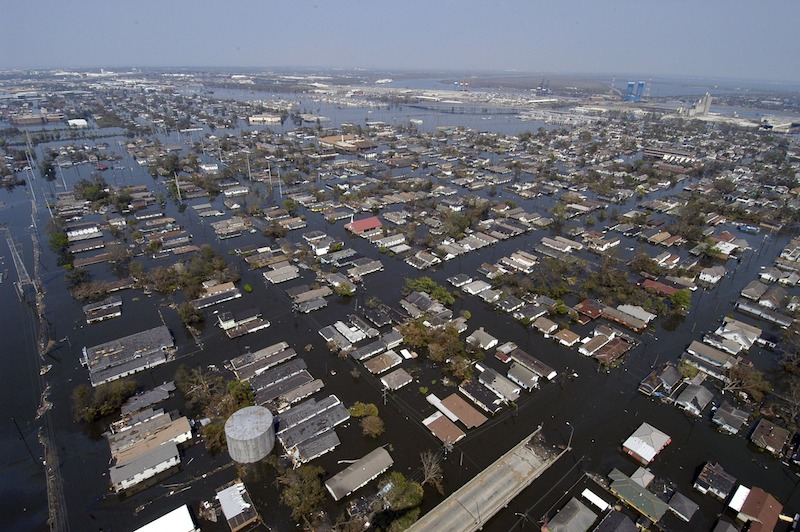Several factors are contributing to increased vulnerability to flooding in urban areas, according to The Growing Threat of Urban Flooding: A National Challenge, a new report by the University of Maryland and Texas A&M University.
As the nation experiences more intense rainfall events, many cities have inadequate infrastructure to cope, the report says. Adding to the problem has been rapid suburban and urban land development that has increased the amount of stormwater runoff.
With multiple government agencies at all levels having some responsibility for these issues, there is lack of collaboration and coordination needed to address technical and political challenges. For example, information on how property owners can reduce their flood risk is not accessible or well-articulated.
In addition, a significant number of areas vulnerable to urban flooding are not identified by FEMA National Flood Insurance Program maps. The reports’ authors made a series of recommendations including that Congress assign one federal agency to provide interim oversight of federal support of urban flood mitigation activities.
Related Stories
| Oct 28, 2011
Los Angeles County mulling building codes for improving health
An ordinance would amend county building codes to promote better walking environments, encourage more bicycling, improve access to healthy foods (farmers markets, community gardens), and enhance project review requirements to ensure that developers include healthy-lifestyle components in their building plans.
| Oct 28, 2011
Bipartisan opposition to federal 3% withholding for contractors
Both major political parties and the Obama Administration support repealing a law that would withhold 3% of all government contracts.
| Oct 28, 2011
OSHA requires training module on top causes of construction deaths
The Occupational Health and Safety Administration (OSHA) now requires a training module on the top four causes of death for construction workers.
| Oct 28, 2011
New York City requiring building energy use to be posted online
Owners of every New York City commercial and residential building larger than 50,000 sf will have to post each building’s energy use online by 2013.
| Oct 28, 2011
New ISO standard for escalator safety
A new ISO standard specifies safety requirements for escalators and moving walks.
| Oct 20, 2011
LEED 2012 to require real-time energy, water use reporting
The LEED 2012 rating system, set to launch in November 2012, will contain features to make sure buildings function as intended, and improve over time.
| Oct 20, 2011
New York City moving to speedier, online design reviews
New York City is moving towards a development design review process that will let officials and developers review blueprints for new projects online in a virtual conference room rather than in person.
| Oct 20, 2011
Michigan bill would let private firms operate as a city’s building department
Michigan House Bill 5011 would change state’s building code to allow private companies to operate as a municipality's building department.
| Oct 20, 2011
Alabama’s strict immigration law drives away construction workers
Alabama's strict new immigration law is driving many construction workers and roofers from the state.
| Oct 20, 2011
Fed bill would allow school rehab funding via historic tax credits
Virginia Sens. Jim Webb (D) and Mark Warner (D) introduced a bill this month to rehab aging schools across the country through the use of historic tax credits.











